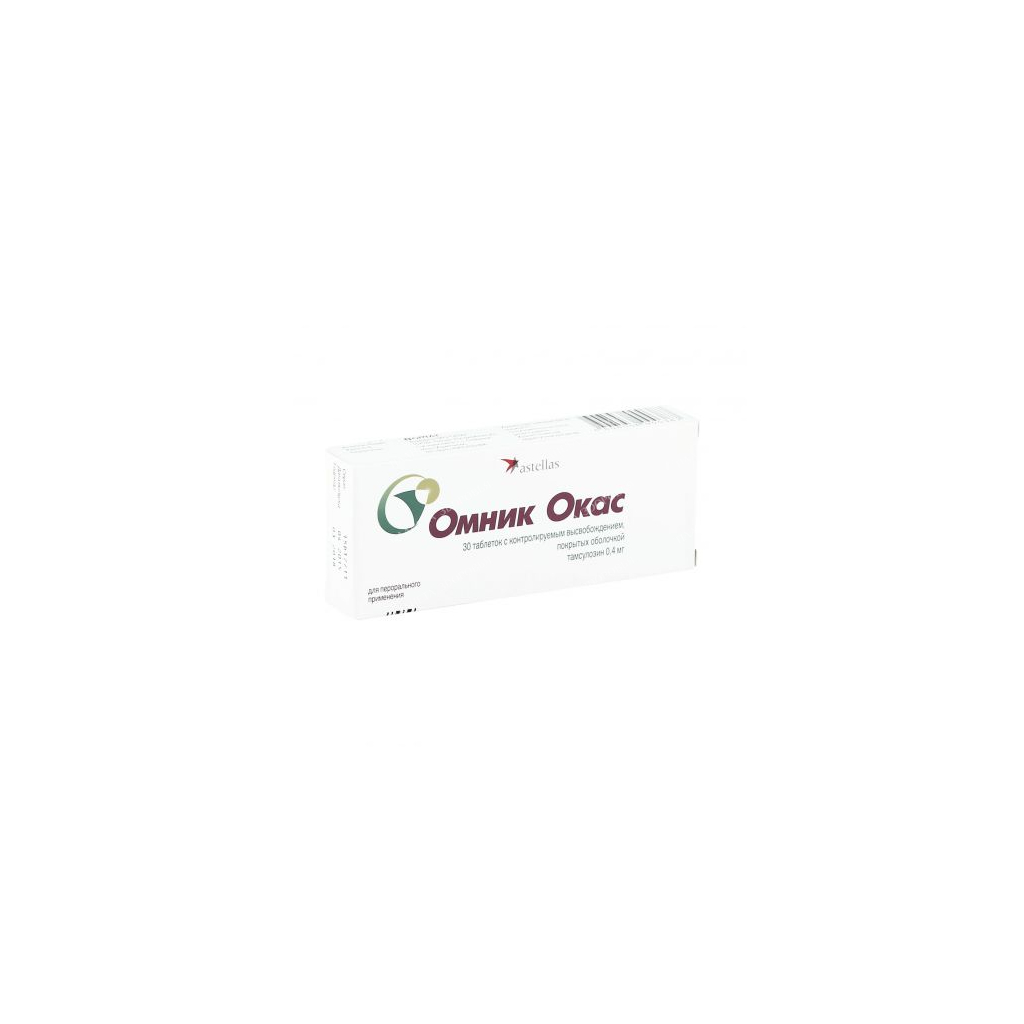Omnic OKAS controlled release tablets p/o 0.4mg №10×3
$89.00
Omnic OKAS: Effective Relief for Benign Prostatic Hyperplasia (BPH)
Experience lasting relief from BPH symptoms with Omnic OKAS controlled-release tablets.
Omnic OKAS is a trusted medication specifically designed to alleviate the troublesome symptoms of benign prostatic hyperplasia (BPH), also known as an enlarged prostate.
What is Omnic OKAS?
Omnic OKAS contains tamsulosin hydrochloride, a highly selective alpha-1A adrenergic receptor blocker. This means it works by relaxing the muscles in the prostate and bladder neck, making it easier for urine to flow.
Benefits of Omnic OKAS:
- Effective Symptom Relief: Omnic OKAS provides long-lasting relief from common BPH symptoms like frequent urination, weak urine stream, and nighttime urination.
- Controlled Release Technology: Omnic OKAS tablets are designed for controlled release, ensuring consistent and reliable medication levels throughout the day.
- Convenient Dosing: Simply take one tablet once a day after breakfast.
Key Features:
- Available in 0.4mg strength
- Controlled-release tablets
- Yellow to brownish-yellow color
- Round, biconvex shape with “04” on one side
- Packaged in blister packs (10 tablets per blister)
Important Information:
- Consult with your doctor before starting Omnic OKAS. This medication may not be suitable for everyone, and your doctor can determine the appropriate dosage and treatment plan for your specific needs.
- Omnic OKAS may interact with other medications. Always inform your doctor about all medications you are currently taking, including over-the-counter drugs and supplements.
- Possible Side Effects: While generally well-tolerated, possible side effects may include dizziness, orthostatic hypotension, headache, and retrograde ejaculation.
Get the Relief You Need:
If you are experiencing symptoms of BPH, consult with your healthcare provider to discuss whether Omnic OKAS is right for you.
Order Omnic OKAS today and take the first step toward a more comfortable life!
Please note: This information is for educational purposes only and should not be considered medical advice. Always consult with your healthcare provider for diagnosis and treatment.
| INN | TAMSULOZIN |
|---|---|
| The code | 118 013 |
| Barcode | 4 607 098 450 999 |
| Dosage | 0.4 mg |
| Active substance | Tamsulosin hydrochloride |
| Manufacturer | Astellas Pharma Europ B.V., The Netherlands |
| Importer | IOOO Interfarmaks 223028 Minsk region, Minsk district, Zhdanovichsky s / s, ag. Zhdanovichi, st. Star, 19a-5, room. 5-2 |
Related products
Urinary Tract Health
Urinary Tract Health
Urinary Tract Health
 Free worldwide shipping on orders $99+
Free worldwide shipping on orders $99+  US: temporary delays — postal services aligning new import rules,
US: temporary delays — postal services aligning new import rules,  EU: 1–2 weeks,
EU: 1–2 weeks,  Worldwide: 1–4 weeks
Worldwide: 1–4 weeks 











